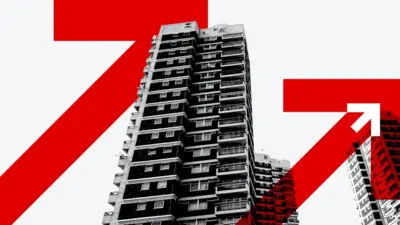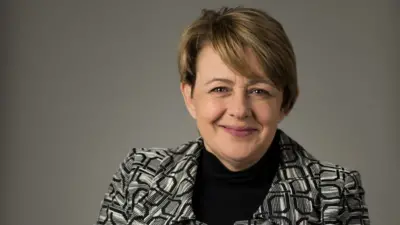We've updated our Privacy and Cookies Policy
We've made some important changes to our Privacy and Cookies Policy and we want you to know what this means for you and your data.
Ofcom calls for clarity in broadband speed ads
Britons are not getting the broadband services they are being sold, research by the regulator Ofcom suggests.
Its analysis of broadband speeds in the UK shows that, for some services, 97% of consumers do not get the advertised speed.
It also shows a growing gap between the claims ISPs make for broadband and the speed being delivered.
To fix the problem, Ofcom is revamping the code of conduct for ISPs and asking for changes to how broadband is sold.
Growing gap
The shows that the average residential broadband speed in the UK has risen in the last 12 months from 4.1Megabits per second (Mbps) to 5.2Mbps.
The report also reveals the changing nature of UK broadband. Now 65% of UK homes have fixed line broadband and 24% of those users are on services sold as being able to support 10Mbps or more. By contrast, in April 2009 only 8% of homes had signed up for such a service.
Unveiling the figures, Ed Richards, chief executive of Ofcom, said the survey revealed a "growing gap" between what people were sold and the reality of their broadband service.
"The gap between the average headline speed and actual speed has increased in this period even though the actual speed has risen," he said.
In 2009, he said, when actual speeds for broadband were 4.1mbps, the average that those services were being advertised for stood at 7.1Mbps. In 2010, when people are generally getting 5.2Mbps out of their broadband, ISPs are claiming they will support speeds up to 11.5Mbps.
Mr Richards acknowledged that selling broadband was tricky because of the many factors that can influence the speed that a consumer experiences.
"It is not a homogenous product," he said. "There are challenges of wiring, line length and interference and so on. It's not as simple as taking an absolute standard product. It's a complicated product, more complicated than anyone imagined."
Despite this, he said, the way broadband was advertised typically by using the words "up to" before a speed was not as clear as it could be.
The speed survey found that, in some cases, hardly any customers got the "up to" speed that was being advertised.
For example, the survey found that on DSL services advertised as being "up to" 20Mbps, only 2% of customers got speeds in the range of 14-20Mbps. Of the others, 32% were getting a 8-14Mbps service and 65%, 8Mbps or less.
A spokesman for BT, Britain's largest ISP, said it gave customers an idea of the speed they were likely to get on their line so their expectations were realistic.
"People get what they sign up for," he said. "They are informed when they sign up so they know what speed to expect."
In some cases, he said, technical problems might stop those estimated speeds being reached.
"If the customer's line cannot achieve that for whatever reason, then the customer can leave us without penalty," he added.
Code changes
In an attempt to improve how broadband is sold, Ofcom has been pushing ISPs to adopt a new code of practice, which will mean consumers get more information about speed as they sign up for a new provider. The code is due to come in over the next 12 months and all the UK's larger ISPs have signed up for it.
It will mean that, instead of being given a single figure, consumers will get an idea of the range of speeds their line can support. This will be provided as a "durable record" so there can be no dispute if reaching an estimated speed proves elusive.
"Ofcom is trying to move the market on from speed," said Alex Salter, co-founder of broadband measurement site SamKnows, which gathered the figures behind the analysis.
"While it is a handy statistic ISPs can use to communicate such a complex service to consumers, it has proven to be misleading," he said.
Mr Salter said giving more information about a service would help the growing number of consumers who are very knowledgeable about the type of broadband they need. Many people were looking for information about delay and jitter on their line as they used higher quality video streams and took part in online gaming.
Mr Richards from Ofcom said the regulator had made its views known to the Advertising Standards Authority which was now conducting a review of the way broadband was sold.
"We do want to see clearer advertising and we make no secret about that," he said. "We want advertising that is more meaningful to the consumer."
A spokeswoman for the ASA said the review would be completed by the end of 2010.
Top Stories
More to explore
Most read
Content is not available








